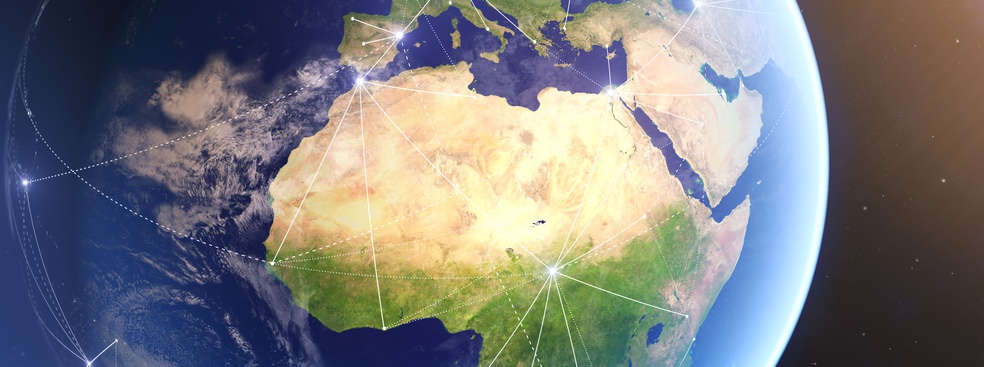Morocco hosted celebrations this week for the twentieth anniversary of the WTO in Marrakech. True to their reputation, the Moroccan authorities have released the stops and gathered dozens of ministers, parliamentarians, business leaders, journalists and African intellectuals. For two days, the speakers took stock of twenty years of trade liberalization in the presence of the Director General of the WTO and his team.
On such a complex and multifaceted issue that is world trade, some stakeholders have a glass-half-full perspective while others would rather see the glass-half-empty. Personally, I belong to the first group and adhere to the standard economic theory that establishes a positive relationship between trade and growth.
That said, we must remember that the link between trade and growth is not automatic and does not play the same way for all parties involved. So let’s take this opportunity to reflect on the conditions most likely to benefit the African people from the welcomed liberalization of world trade.
Without endogenous production capacity, world trade is a fool’s bargain between Africans and themselves
We could start this analysis by sharing some key figures and identifying the challenges that the African continent currently faces. Twenty years after the creation of the WTO, it is clear that the share of Africa in world trade has not increased much and is around 3% while Africans represent 16% of the world population. More worryingly, the share of Africa in global GDP is close to 3%. The status quo is clearly not satisfactory.
The low participation of Africa to the creation of wealth and global trade is even more worrying when one considers that, in 2050, the continent will have 2.4 billion people who will represent one third of the global population. By then, a majority of Africans will live in cities so we can see what challenges must be met to ensure the well-being of Africans.
I do not mean to frighten the reader by these numbers as they just state the obvious. A country or a continent can enjoy the benefits of free trade if it is works, in parallel, to boost its own production. Unless you invest in the development of Africa’s endogenous productive capacity, participation in trade liberalization will risk sounding like a fool's bargain between Africans and ... themselves! Indeed, Africa cannot blame the other economic powers for doing what it takes benefit from the free movement of goods, capital and services. A continent that spends only 0.3% of its own GDP towards research and development, seven times less than the average for industrialized countries, cannot reasonably expect to take full advantage of trade liberalization.
How to increase the contribution of Africa to the production of wealth and global trade?
The classic three levers are foreign investment, public investment and endogenous private investment. With varying success, African governments have attracted foreign investors and injected public money into infrastructure development. For example, Morocco has handled rather well these two levers although the long term effect of large infrastructure projects on economic growth is not yet clear.
The third lever, endogenous private investment, is the least operating in Africa. The reasons for this deficit are numerous and fairly well known: insufficient human capital, labor market rigidities, unfavorable business climate, insufficient private savings, lack of access to funding, etc. It is not necessary to repeat here what everybody knows.
Entrepreneurs: the missing link
For my part, I believe that Africa critically lacks innovative and ambitious entrepreneurs. The 2.4 billion people of the continent, in 2050, will need basic services such as food, education, housing, health, sanitation, water and energy. But we already know that these services can never be supplied in quantity and quality by the State. Africans cannot rely either on international NGOs for their well-being. Since the solution can neither come from the State nor from philanthropy, the market is the only other viable option.
In other words, the continent's stability will depend on its ability to generate cohorts of entrepreneurs able to reconcile the necessary and legitimate pursuit of profit with the common good of their people. This can be done by creating the companies that can meet the growing needs of their fellow citizens.
Without fostering endogenous entrepreneurship, Africa would be condemned to become a huge market where well off citizens will consume imported goods and services and where the majority will live in need and insecurity, with high risks on the political and social stability of the continent.
Without being alarmist, it is urgent that this situation improves. And there are already some good news: African economies have changed enormously over the last twenty years, recording sustained high growth rates. Politicians seem to have finally taken the measure of inclusive sustainable development issues. Above all, young Africans are now connected to the world and are realizing that they cannot expect everything from the welfare state and they have to take their lives into their own hands. The leaders of the continent have the duty to turn the energies of their young compatriots into entrepreneurial initiatives. Then, and only then, will Africa be able to boost its share in wealth creation and enjoy the benefits of trade liberalization.









